Current Lab Members: Karen Frey | Clare Gaffey | Anna Zhu
Former Lab Members: Emily Heltzel | Aandishah Samara | Luisa Young | Sophie Spiliotopoulos | Shannon Reault | Jessica Strzempko | Anthony Himmelberger | Melishia Santiago | Ashley York | Kristen Shake | Anela Layugan | Warren Scott | Samuel Berman | Emily Sturdivant | Luke Trusel | Dylan Broderick | Meghan Helmberger | Prajjwal Panday | Christie Wood Logvinova | Blaize Denfeld | Claire Griffin | Katherine Willis
Current Lab Members:
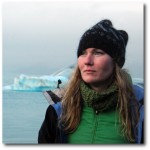 Karen Frey, Professor
Karen Frey, Professor
Ph.D., Geography, University of California Los Angeles (2005)
M.A., Geography, University of California Los Angeles (2000)
B.A., Geological Sciences, Cornell University (1998)
Detailed CV
Karen’s research interests involve the combined use of field measurements, satellite remote sensing, and GIScience to study large-scale linkages between land, atmosphere, ocean, and ice in polar environments. Over the past decade, she has conducted field-based research in West and East Siberia, the North Slope of Alaska, as well as the Bering, Chukchi, and Beaufort Seas. Her most recent work focuses on the hydrological and biogeochemical impacts of terrestrial permafrost degradation across Siberia as well as the biological and biogeochemical impacts of sea ice decline in polar shelf environments. She has served as the major research adviser for numerous extremely talented Ph.D., M.S./M.A., and B.A. students who have worked on projects in Siberia, Alaska, West Antarctica, Greenland, the Himalayas, and the Bering/Chukchi/Beaufort Seas.
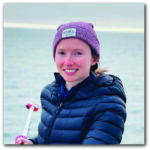
Clare Gaffey, Ph.D. Candidate
M.A., Geography, University at Albany SUNY (2018)
B.S., Environmental Science, University at Albany, SUNY (2012)
Detailed CV
Clare’s research interests center on monitoring marine Arctic ecosystems in the face of ongoing climate change. At Clark, her research links cruise-collected samples with remotely sensed satellite data to examine changing phenology patterns of phytoplankton in the Pacific Arctic Region. Additionally, Clare is interested in developing finer-scale remote sensing tools including unmanned aerial vehicles (UAVs) to better bridge in situ data with coarse satellite data.

Anna Zhu, Ph.D. Student
M.S., Geography, George Washington University (2021)
B.A., Geography, George Washington University (2019)
B.S., Economics, George Washington University (2019)
Anna became interested in the Arctic and how it is changing after a field course in Siberia during her undergraduate studies. Since then, she has done field work in Alaska and Russia, looking at temperature changes and permafrost systems. She also participated in a research cruise aboard the Canadian Coast Guard Ship Sir Wilfrid Laurier, collecting data to contribute to research on the changing biology of the Bering and Chukchi Seas under the Distributed Biological Observatory project. At Clark and in the Polar Science Research Laboratory, she hopes to further her studies in the Arctic, the cryosphere, ocean sciences, and climate change as well as gain valuable field and laboratory skills.
Former Lab Members:
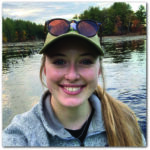
Emily Heltzel
B.A., Earth System Science, Clark University (2022)
Emily first became interested in the Arctic during her undergraduate studies, specifically when studying Arctic amplification and the many feedback cycles. She is interested in studying the effects of climate change in the Arctic and the impacts of declining sea ice on ocean systems. She is also interested in using remote sensing and other GIS tools to complement field data. For her senior honors thesis, she focused upon the distribution of marine suspended particulate matter across the Pacific Arctic region.

Aandishah Samara
B.A., Earth System Science (minor in Physics), Clark University (2021)
Aandishah’s main interests in research include climate change, sea-ice-atmosphere interactions, and applications of remote sensing. In particular, she is fascinated by the impacts of climate change on the interactions between the cryosphere and the atmosphere, and how they impact feedback systems. At Clark, she used remote sensing data to analyze the negative correlation between sea ice and cloud cover in the Pacific Arctic using time series analysis. Her B.A. thesis was entitled “Satellite-Based Observations of Cloud Cover Responses to Declining Sea Ice in the Pacific Arctic Region”. Aandishah is currently working on her M.S. thesis, co-advised by Karen Frey and Abby Frazier.
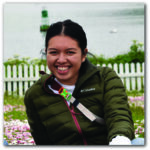
Luisa Young
Ph.D., Geography, Clark University (2022)
M.S., Geographic Information Science for Development and Environment, Clark University (2013)
B.S., Natural Resources & Environmental Management, University of Hawaii at Manoa (2010)
Luisa’s research interests at Clark included land change science, water resources, ecological modeling and the use of remote sensing technology for environmental applications. She had further interests in the interactions between climate change, natural disasters and humans-environment systems. At Clark, she was able to expand her horizons to polar systems working on atmospheric, oceanographic and time series analysis. Luisa entered the Ph.D. program in Fall 2016 after several years of experience in the Graduate School of Geography as an RA and TA in the fields of GIScience and Remote Sensing. Luisa’s Ph.D. dissertation was co-advised by Karen Frey and John Rogan.
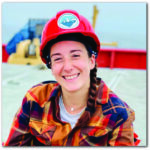 Sophie Spiliotopoulos
Sophie Spiliotopoulos
M.S., GIScience, Clark University (2021)
B.A., Geography and French, Clark University (2020)
Sophie’s research interests at Clark involved investigations of climate warming on the Pacific Arctic marine environment. Her undergraduate thesis was titled “Spatial Relationships of Chlorophyll-a and Suspended Particulate Matter in the Pacific Arctic through In-Situ and Satellite Data“. Sophie served as a research assistant in the Polar Science Research Lab for four years while at Clark and participated in two field seasons onboard the CCGS Sir Wilfrid Laurier as part of the NSF-funded Distributed Biological Observatory project.
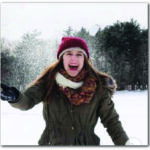 Shannon Reault
Shannon Reault
M.S., GIScience, Clark University (2021)
B.A., Earth System Science (minor in Geography), Clark University (2020)
Shannon’s research interests while at Clark included understanding the impacts of climate warming on Arctic sea ice environments. Her undergraduate thesis was titled “Is the Bering Sea the New Hotspot of Sea Ice Decline? A Comparative Analysis of First-Year Sea Ice Trends in the Barents and Bering Seas“. Shannon was particularly interested in utilizing remote sensing and GIScience techniques to better understand the impacts of climate change and moved on to the internship track for her M.S. degree in GIScience.
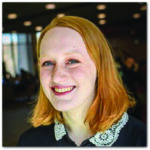 Jessica Strzempko
Jessica Strzempko
M.S., GIScience, Clark University (2021)
B.A., Earth System Science (minor in Geography), Clark University (2020)
Jess’s research interests while at Clark included understanding the impacts of climate warming in the Arctic on fire severity across landscapes. Her undergraduate thesis was titled “Burn Severity and Vegetation Recovery Analysis for the Anaktuvuk River Fire on the North Slope Tundra of Alaska“. Jess continued to hone her skills in remote sensing and GIScience during her M.S. degree as well, but focused on research outside the lab for her M.S. thesis.
 Anthony Himmelberger
Anthony Himmelberger
M.S., GIScience, Clark University (2020)
B.A., Earth System Science (minor in Geography), Clark University (2019)
Anthony’s research interests while at Clark included understanding the impacts of climate warming on Arctic sea ice fragmentation and the habitat of the Pacific walrus. His undergraduate thesis was titled “Investigating the Fragmentation of Pacific Walrus Sea-Ice Habitat in the St. Lawrence Island and Wainwright Regions of the Bering and Chukchi Seas (Alaska) using Landsat Satellite Data“. Anthony was particularly interested in utilizing remote sensing and GIScience techniques to better understand the impacts of climate change and moved on to the internship track for his M.S. degree in GIScience.
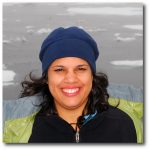 Melishia Santiago
Melishia Santiago
Ph.D., Geography, Clark University (2019)
M.S., Biogeography, University of Massachusetts Amherst (2011)
B.S., Biology, University of Massachusetts Amherst (2008)
Melishia’s research interests included the study of Arctic marine environments, biogeochemical cycling, and the combined use of field measurements and satellite remote sensing. At Clark, her dissertation research focused upon the distribution and variability of chromophoric dissolved organic matter (CDOM) in the Chukchi and Beaufort seas of the Pacific Arctic region.
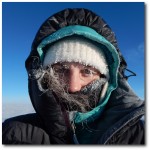 Ashley York
Ashley York
Ph.D., Geography, Clark University (2019)
M.S., Applied Geospatial Sciences, Northern Arizona University (2013)
B.S., Geography/Statistics, University of Nevada Reno (2010)
Ashley’s main research interests at Clark included remote sensing of the cryosphere and glaciology. She was particularly interested in the combination of remote sensing and ground-based methods for calibration and validation between the two techniques. At Clark, Ashley looked at ocean-ice-atmosphere interactions, particularly the relationship of sea surface temperature and sea ice variability in outlet glacier behavior in the Disko Bay region of West Greenland, through the analysis of satellite time series and ice core data.
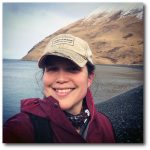 Kristen Shake
Kristen Shake
Ph.D., Geography, Clark University (2019)
M.S., Chemical Oceanography, University of Alaska Fairbanks (2011)
B.S., Geography/Environmental Studies, University of Alaska Fairbanks (2009)
Kristen’s research was centered upon the fields of legal geography and polar climate change. At Clark, she had interests in themes of human presence and absence in the polar regions and how these are linked to climate related drivers of change to legal spaces in both terrestrial and marine environments. Her research specifically investigated the legal presence of sea ice in the greater Pacific-Arctic region and how this connects to larger issues of sovereignty, resource extraction operations, and legal issues surrounding marine and environmental safety infrastructure in an increasingly sea ice-free Arctic.
 Anela Layugan
Anela Layugan
M.S., GIScience, Clark University (2018)
B.A., Environmental Science/Earth System Science, Clark University (2017)
Anela’s interests at Clark included oceanography and applications of GIScience and remote sensing technology for Earth System Science research. She was particularly interested in the role that sea ice plays in the Arctic System, including the ice-albedo feedback and phytoplankton blooms. At Clark, she conducted change-point analysis on sea ice in the Arctic using satellite time series data.
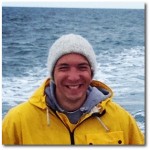 Warren Scott
Warren Scott
M.S., GIScience, Clark University (2017)
B.A., Geography, Clark University (2016)
While at Clark, “Wren” was interested in how global environmental change can be monitored and observed in the Arctic and Antarctic regions. In particular, his interests included using remotely sensed imagery to assess and quantify the changes taking place to glaciers, ice sheets and sea ice in the Arctic and Antarctic regions. At Clark, he used remotely sensed data to examine the effects of changing sea ice cover on phytoplankton bloom dynamics in the Beaufort and Bering seas.
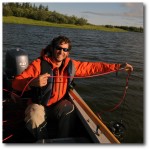 Samuel Berman
Samuel Berman
M.S., GIScience, Clark University (2015)
B.A., Environmental Science/Earth System Science, Clark University (2014)
Sam’s research at Clark took him to East Siberia in both 2012 and 2013, where he investigated carbon cycling in thermokarst lakes for his B.A. senior honors thesis. In particular, Sam incorporated both field measurements and modeling to estimate the total store of dissolved organic carbon in multiple lakes within a small watershed near Cherskiy, East Siberia. For his M.S. thesis research, Sam participated in two cruises onboard the Canadian Coast Guard Sir Wilfred Laurier icebreaker in 2014 and 2015 where he studied the distribution of chromophoric dissolved organic matter throughout the Bering and Chukchi seas in the Pacific Arctic region.
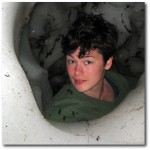 Emily Sturdivant
Emily Sturdivant
M.S., GIScience, Clark University (2015)
B.A., Geography, Clark University (2013)
Emily’s participation in the Polaris Project in East Siberia during summer 2011 triggered a passion for Arctic Science. While in the field, she focused on measurements of gas fluxes from inland water surfaces. After that experience, she focused her research for both her B.A. honors thesis and M.A. thesis on detecting the timing of snowmelt onset across the Alaskan North Slope using satellite radar scatterometer data (using both QuikSCAT and ASCAT time series). While at Clark, Emily acquired a full suite of GIS competencies, such as ArcGIS and Python programming, and remote sensing skills including landcover classification and time series analysis.
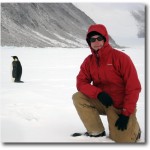 Luke Trusel
Luke Trusel
Ph.D., Geography, Clark University (2014)
M.S., Geology, Northern Illinois University (2009)
B.S., Geology, University of Massachusetts Amherst (2006)
Luke’s interests at Clark were focused on glaciology, remote sensing of the cryosphere, and glacial marine processes and dynamics; in particular, his interests were in applying remote sensing and ground based geophysical methods to better characterize physical processes and to understand their implications. His Ph.D.research included quantifying surface melting across the Antarctic using time series of microwave satellite data. This work included development of a new metric to characterize the intensity of surface melting and the examination of Antarctic ice sheet-ocean relationships. After Luke earned his Ph.D. at Clark, he continued on to the Woods Hole Oceanographic Institution as a Postdoctoral Scholar. Currently, Luke is an Assistant Professor in the Department of Geography at Penn State University. His research webpage is here.
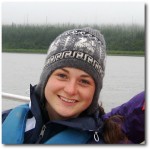 Dylan Broderick
Dylan Broderick
M.A., GIScience, Clark University (2013)
B.A., Geography, Clark University (2012)
While at Clark, Dylan was interested in terrestrial carbon stocks of the Arctic, particularly in East Siberia where she participated as a member of the Polaris Project in 2011 and 2012. She had interests in the use of remote sensing and GIS to identify patterns and trends of carbon storage across the landscape. Her M.A. research used carbon stock measurements collected in the field in combination with satellite imagery to predict the amount of carbon stored within sub-watersheds of the Kolyma River basin in East Siberia. Currently, Dylan is a Staff Scientist/GIS Specialist at The Johnson Company, an Environmental Science and Engineering consulting firm in Montpelier, VT.
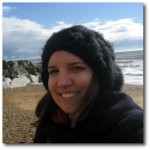 Meghan Helmberger
Meghan Helmberger
Ph.D., Geography, University of Colorado Boulder (Current Student)
M.S., Environmental Science & Policy, Clark University (2013)
B.A., Environmental Science & Policy and Studio Art, Clark University (2012)
While at Clark, Meghan was interested in studying a variety of aspects of the Arctic, including interests in the use of GIS to understand spatial patterns in environmental change. For her M.S. research, she investigated the spatial and temporal variability of lake biogeochemistry across the Alaskan North Slope, focusing mainly on the quantity and quality of chromophoric dissolved organic matter (CDOM) in these freshwaters. Currently, Meghan is a Ph.D. student in the Department of Geography at the University of Colorado Boulder, working with Dr. Mark Serreze to investigate patterns of the surface energy balance across the Arctic Ocean over the past 40 years.
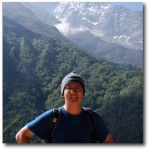 Prajjwal Panday
Prajjwal Panday
Ph.D., Geography, Clark University (2013)
M.S., Environmental Science, SUNY College of Environmental Science & Forestry (2007)
B.S., Chemistry/Environmental Studies, St. Lawrence University (2005)
Prajjwal’s research at Clark University focused on understanding cryospheric and hydrologic processes in mountainous environments. His dissertation focused on utilizing remote sensing and field-based observations to understand, assess, and monitor these processes, particularly on snow-covered areas and downstream water resources in the Hindu-Kush Himalayan region. Since graduating from Clark, Prajjwal served as a Postdoctoral Fellow at the Woods Hole Research Center as well as a Visiting Assistant Professor in the Graduate School of Geography at Clark University. Currently, Prajjwal is an Assistant Professor of Environmental Science at Nichols College.
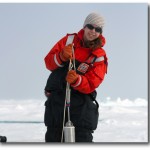 Christie Wood Logvinova
Christie Wood Logvinova
M.A., Geography, Clark University (2012)
M.S., Physical Oceanography, MIT/WHOI Joint Program in Oceanography (2007)
B.S., Mathematics/Earth, Atmospheric and Planetary Sciences, MIT (2005)
At Clark, Christie was interested in how variations in climate impact the Arctic marine system. In particular, she was looking at how changes in Arctic sea ice affect the ecology and biogeochemistry of the Arctic Ocean. Her research focused on understanding the impacts of sea ice decline in the Chukchi and Beaufort seas on the dynamics of dissolved organic matter, which plays an important role in the marine ecosystem as both a carbon source for the microbial food web and as an inhibitor of light. This work was carried out through field measurements and lab experiments.
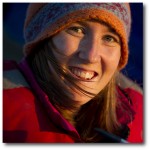 Blaize Denfeld
Blaize Denfeld
Ph.D., Department of Ecology and Genetics/Limnology, Uppsala University (2016)
M.A., GIScience, Clark University (2011)
B.A., Earth System Science (minor in Geography), Clark University (2010)
Blaize spent two summers (2009 and 2010) researching the biogeochemistry of the Kolyma River basin in Northeast Siberia as a participant in the Polaris Project. Her research combined field measurements and remotely sensed imagery to examine regional carbon cycle dynamics (and in particular, how physical and biogeochemical properties drive CO2 evasion from streams and rivers). Blaize was selected for a prestigious Ph.D. fellowship (beginning September 2011) to continue her research in Arctic carbon cycling and limnology in the Department of Ecology and Genetics at Uppsala University in Sweden.
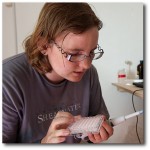 Claire Griffin
Claire Griffin
Ph.D., Marine Science, University of Texas at Austin (2016)
B.A., Geography (minor in Environmental Science), Clark University (2010)
Claire is a former undergraduate researcher in the Polar Science Research Laboratory (and Polaris Project 2009 alumna), whose research focused on combining field measurements and satellite observations of dissolved organic matter in East Siberian rivers. Claire completed the Ph.D. program at the Marine Science Institute, University of Texas at Austin where she was an NSF Graduate Research Fellow. Working with Dr. Jim McClelland, she continued her research in Arctic river biogeochemistry and satellite remote sensing. Claire is currently a Postdoctoral Associate in the Department of Environmental Sciences at the University of Virginia.
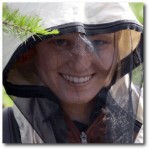 Katherine Willis
Katherine Willis
Ph.D., Geography, University of California Los Angeles (2016)
M.A., Geography, University of California Los Angeles (2011)
B.A., Environmental Science (minor in Mathematics), Clark University (2008)
Kate is a former undergraduate researcher in the Polar Science Research Laboratory (and Polaris Project 2008 alumna), and continued in Ph.D. program in the Department of Geography at UCLA where she has worked with both Dr. Glen Macdonald and Dr. Tom Gillespie. Her dissertation was entitled: “Assessing landscape dynamics using remote sensing for ecological conservation” and has research interests focused on land use change, climate change, remote sensing, protected areas, and GIS.
